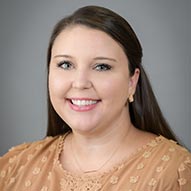Dallas
214-456-2768
Fax: 214-456-6898
Plano
469-303-0055
Fax: 469-303-0655
Children’s Health has one of the largest programs for pediatric neuromuscular disease in the United States. We are recognized around the country and globally for our expertise, and we offer the latest diagnostic tools and comprehensive treatment. Our goal is to support your child’s physical and emotional health and support the whole family.
214-456-2768
Fax: 214-456-6898
469-303-0055
Fax: 469-303-0655
Children with neuromuscular diseases have problems with the nerves and muscles that affect how their muscles work. They may affect the nerves that control different kinds of muscles, the muscles themselves or the way that the nerves and muscles communicate with each other. Some of these conditions are inherited (passed from parent to child), but others have other causes. These disorders typically cause muscle weakness. Usually, the symptoms slowly get worse over time.
There are many different types of neuromuscular disorders including:
Congenital muscular dystrophy is a group genetic disorder that causes muscles to get weaker and weaker over time.
Congenital myopathies are genetic diseases that cause muscle weakness that can be mild to severe.
This condition causes problems with the nervous system and movement.
Limb-girdle muscular dystrophies are rare disorders with muscle-wasting (weakening, shirking and loss of muscles) in the hips and shoulders.
This type of muscular dystrophy begins in adulthood and can be seen as a congenital, childhood or adult form.
Neuromuscular junction disorders affect the area where nerves connect to muscles. Myasthenia gravis, botulism and congenital myasthenic syndrome are neuromuscular junction disorders.
Neuropathies are problems with the nerves that can cause numbness, tingling, pain and other symptoms. Acquired neuropathies include Guillain-Barre syndrome, chronic inflammatory demyelinating polyneuropathy, diabetic neuropathy and toxic neuropathies. Hereditary neuropathies include Charcot-Marie-Tooth disease (CMT).
This condition makes it hard for a child to control their muscle movement. The main problem is in the motor nerve cells located in the spine.
Signs and symptoms are different for different types of neuromuscular conditions, but they often include:
Doctors typically start by getting a medical history and conducting a physical exam to evaluate your child’s reflexes and muscle strength. Other tests to evaluate your child may include:
These conditions have a range of causes. Some are inherited, while others are not. Some may be caused by other diseases, or they may be due to an autoimmune reaction where the body’s immune system attacks itself. Some are caused by injuries, including injuries at birth.
Based on the specific condition that your child has, we make a treatment plan so that they can see all the specialists they need. We also coordinate the care, including for:




Neuromuscular conditions typically don’t go away. Their symptoms usually get worse over time. Treatment can help reduce your child’s symptoms so that they can move better and have a better quality of life.
These conditions can appear at different ages. Children with congenital neuromuscular disorders will have them at birth.